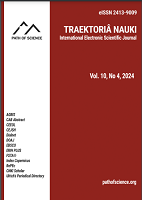Optimised Condition Catalytic Upgrading of Agbabu Bitumen in the Presence of Rice Husks
Optimised Condition Catalytic Upgrading of Agbabu Bitumen in the Presence of Rice Husks
Author(s): Yunusa Mohammed Oseni, Umar Omeiza Aroke, Baba Jibril YakubuSubject(s): Energy and Environmental Studies, Environmental interactions
Published by: Altezoro, s. r. o. & Dialog
Keywords: Heavy Oil; Bitumen; Bitumen Upgrading; Rice Husks; Mesoporous Aluminosilicate Catalysts;
Summary/Abstract: In this study, the optimisation of bitumen collected from Agbabu Ondo State, Nigeria, was upgraded in the presence of rice husks in a nitrogen environment using a 100 ml autoclave batch reactor with the aid of the design expert software. Response surface methodology (RSM) was used to determine the optimum conditions for the bitumen upgrading in the presence of rice husks using the Box-Behnken Designed Experiment (BBD). Three mesoporous aluminosilicate catalysts (NiMo/ZSM-5, CoMo/HZSM-5 and Mo/HZSM-5) were used to upgrade the bitumen at the obtained optimised point. The bitumen sample was characterised by saturates (53.48 wt.%), aromatics (12.84 wt.%), resins (15.37 wt.%), asphaltenes (8.86 wt.%) and an initial viscosity of 86.78 Pa.s, API gravity of 7.87 o and density of 1.0153 kg/l. The GC-MS result revealed that there were 42 chemical compounds present in the raw bitumen. The XRF result for the rice husks revealed that the silica to Alumina (SiO2/Al2O3) ratio was 11.89:1. RSM optimisation of the experimental runs with the autoclave reactor gave an optimum condition (Temperature of 345.716 oC, Reaction time of 30 min, and Rice husks of 1.0 wt.%) without employing any of the three mesoporous aluminosilicate catalysts. The responses obtained for the upgraded oil were viscosity 8.34 Pa.s, API gravity 24.520 o , residue yield 22.39 w/w% and light oil yield 50.064 w/w%. The experimental run with NiMo/ZSM-5 catalyst at the optimum conditions was observed to be more effective in the catalytic thermal cracking of the bitumen upgrading process, as the light oil yield was 70.42 w/w%, viscosity of 2.060 Pa.s, API gravity of 29.826o and residue yield of 10.66 w/w% compared to what was obtained from CoMo/HZSM-5 and Mo/HZSM-5 mesoporous aluminosilicate catalysts. The FT-IR and GC-MS of the upgraded Agbabu bitumen testified that the level of upgrade of the bituminous oil was satisfactory as the raw Agbabu bitumen had an initial viscosity of 86.780 Pa.s, API gravity of 7.87 o and density of 1.0153 kg/l in which all the initial core properties of the bitumen have shifted satisfactorily after the bitumen upgrade to produce light oil that fell within the acceptable range of refinery feedstock specifications for refining processes in the vacuum distillation unit (VDU).
Journal: Traektoriâ Nauki
- Issue Year: 10/2024
- Issue No: 4
- Page Range: 6001-6021
- Page Count: 21
- Language: English

